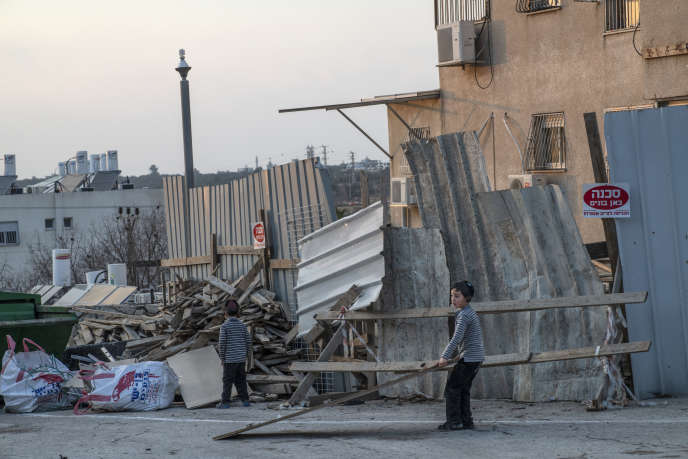
Is this an Israeli settlement? From Highway 446 which overlooks it, Modiin Illit seems too vast, its buildings too inconsistent and its walls too gray, compared to the alignments of identical pavilions, unattractive but clean that characterize Israeli architecture in the occupied West Bank.
This colony and its little sister Beitar Illit concentrates almost a third of the settlers in the West Bank, or 125,000 inhabitants. All are ultra-Orthodox and their presence cannot be taken for granted: the haredim ("God-fearing") reject even the idea of an Israeli state and the very concept of Zionism is foreign to them. They fear the Palestinian villages around them as much as Israeli secular society in Tel Aviv, 40 km to the west.
Yet this community, the most fertile in Israel, embodies the future of the settlements. Since the Oslo Accords in 1993, it has quietly provided half of their population growth. Without the ultra-Orthodox, the Jewish population in the Palestinian territories (over 600,000 people) would stagnate.
Fruit of a compromise
The presence of the haredim to Modiin Illit is the result of a compromise, agreed to by Rabbi Eliezer Shach. The strong man of the community, who died in 2005, had advocated in his time, from his religious school in Bnei Brak, near Tel Aviv, the restitution of all the territories occupied during the Six-Day War in 1967 In the early 1990s, the rabbi agreed to send his followers to the colonies, after receiving assurances from Prime Minister Yitzhak Rabin that Modiin Illit would never be evacuated.
A few kilometers from the "green line", young couples in his community find cheap accommodation (about a third of the prices in force in Jerusalem), with direct connections to the religious centers of Bnei Brak and Jerusalem. "Here, a primary school class is born every week, and the children are spared the influence of secular society. No car is driven on Shabbat. For the rest, people are not involved in politics: many of them ignore that they live beyond the green line ", says Suzanne Liberman, who moved to Modiin Illit in 1993.

In permanent construction, on which Arab workers are busy, the city is drowned under the dust of construction machinery. Settler life has its advantages: the streets are safe and children are kings in this huge daycare center, where piles of strollers clutter the stairs. Women in the community find a job for a few hours a day at Matrix, a computer programming company, in a call center, or at Citybook, a company that provides real estate insurance services in the United States.




